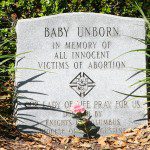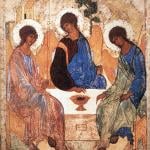Vatican City, Dec 23, 2014 / 10:20 am (CNA/EWTN News).- In a Christmas message to Christians of the Middle East, Pope Francis grieved the violence that has ravaged and displaced many of the region's faithful. But the birth of Jesus, he insisted, gives us the ultimate consolation – God has come in the flesh to save us. “I write to you just before Christmas, knowing that for many of you the music of your Christmas hymns will also be accompanied by tears and sighs,” Pope Francis said in his Dec. 23 message. “Nonetheless, the birth of the Son of God in our human flesh is an indescribable mystery of consolation: 'For the grace of God has appeared for the salvation of all people.'” In his remarks, the Pope stressed the need for unity in peace efforts between Eastern Catholic Churches and Orthodox Churches, as well as continued dialogue with Jews and Muslims in the region. “The more difficult the situation, the more inter-religious dialogue becomes necessary. There is no other way,” the Pope said. “Dialogue, grounded in an attitude of openness, in truth and love, is also the best antidote to the temptation to religious fundamentalism, which is a threat for followers of every religion.” Pope Francis also urged the international community “to address your needs and those of other suffering minorities, above all by promoting peace through negotiation and diplomacy, for the sake of stemming and stopping as soon as possible the violence which has already caused so much harm.” “I once more condemn in the strongest possible terms the traffic of arms,” he wrote. “Instead, what are needed are plans and initiatives for peace, so as to further a global solution to the region’s problems.” “How much longer must the Middle East suffer from the lack of peace? We must not resign ourselves to conflicts as if change were not possible!”Below is the full text of Pope Francis' message: “Dear brothers and sisters: 'Blessed be the God and Father of our Lord Jesus Christ, the Father of mercies and God of all consolation, who consoles us in all our affliction, so that we may be able to console those who are in any affliction, with the consolation with which we ourselves are consoled by God'. When I thought of writing to you, our Christian brothers and sisters in the Middle East, these words of Saint Paul immediately came to mind. I write to you just before Christmas, knowing that for many of you the music of your Christmas hymns will also be accompanied by tears and sighs. Nonetheless, the birth of the Son of God in our human flesh is an indescribable mystery of consolation: 'For the grace of God has appeared for the salvation of all people'. Sadly, afflictions and tribulations have not been lacking, even more recently, in the Middle East. They have been aggravated in the past months because of the continuing hostilities in the region, but especially because of the work of a newer and disturbing terrorist organization, of previously unimaginable dimensions, which has perpetrated all kinds of abuses and inhuman acts. It has particularly affected a number of you, who have been brutally driven out of your native lands, where Christians have been present since apostolic times. Nor, in writing to you, can I remain silent about the members of other religious and ethnic groups who are also experiencing persecution and the effects of these conflicts. Every day I follow the new reports of the enormous suffering endured by many people in the Middle East. I think in particular of the children, the young mothers, the elderly, the homeless and all refugees, the starving and those facing the prospect of a hard winter without an adequate shelter. This suffering cries out to God and it calls for our commitment to prayer and concrete efforts to help in any way possible. I want to express to all of you my personal closeness and solidarity, as well as that of the whole Church, and to offer you a word of consolation and hope. Dear brothers and sisters who courageously bear witness to Jesus in the land blessed by the Lord, our consolation and our hope is Christ himself. I encourage you, then, to remain close to him, like branches on the vine, in the certainty that no tribulation, distress or persecution can separate us from him. May the trials which you are presently enduring strengthen the faith and the fidelity of each and all of you. I pray that you will be able to experience a fraternal communion modeled on that of the first community of Jerusalem. The unity willed by our Lord is more necessary than ever at these difficult times; it is a gift from God, who appeals to our freedom and awaits our response. May the word of God, the sacraments, prayer and fellowship nourish and continually renew your communities. The situation in which are you living is a powerful summons to holiness of life, as saints and martyrs of every Christian community have attested. I think with affection and veneration of the pastors and faithful who have lately been killed, often merely for the fact that they were Christians. I think also of those who have been kidnapped, including several Orthodox bishops and priests of various rites. May they soon return, safe and sound, to their homes and communities! I ask God to grant that all this suffering united to the Lord’s cross will bring about much good for the Church and for all the peoples in the Middle East. In the midst of hostility and conflicts, the communion which you experience in fraternity and simplicity is a sign of God’s Kingdom. I am gratified by the good relations and cooperation which exist between the patriarchs of the Eastern Catholic Churches and those of the Orthodox Churches, and also between the faithful of the different Churches. The sufferings which Christians endure contribute immensely to the cause of unity. It is the ecumenism of blood, which demands a trusting abandonment to the working of the Holy Spirit. May you always bear witness to Jesus amid your difficulties! Your very presence is precious for the Middle East. You are a small flock, but one with a great responsibility in the land where Christianity was born and first spread. You are like leaven in the dough. Even more than the many contributions which the Church makes in the areas of education, healthcare and social services, which are esteemed by all, the greatest source of enrichment in the region is the presence of Christians themselves, your presence. Thank you for your perseverance! Your efforts to cooperate with people of other religions, with Jews and Muslims, is another sign of the Kingdom of God. The more difficult the situation, the more interreligious dialogue becomes necessary. There is no other way. Dialogue, grounded in an attitude of openness, in truth and love, is also the best antidote to the temptation to religious fundamentalism, which is a threat for followers of every religion. At the same time, dialogue is a service to justice and a necessary condition for the peace which all so ardently desire. The majority of you live in environments which are predominantly Muslim. You can help your Muslim fellow citizens to present with discernment a more authentic image of Islam, as so many of them desire, reiterating that Islam is a religion of peace, one which is compatible with respect for human rights and favours peaceful coexistence on the part of all. This will prove beneficial for them and for all society. The tragic situation faced by our Christian brothers and sisters in Iraq, as well as by the Yazidi and members of other religious and ethnic communities, demands that all religious leaders clearly speak out to condemn these crimes unanimously and unambiguously, and to denounce the practice of invoking religion in order to justify them. Dear brothers and sisters, almost all of you are native citizens of your respective countries, and as such you have the duty and the right to take full part in the life and progress of your nations. Within the region you are called to be artisans of peace, reconciliation and development, to promote dialogue, to build bridges in the spirit of the Beatitudes, and to proclaim the Gospel of peace, in a spirit of ready cooperation with all national and international authorities. In a special way I would like to express my esteem and gratitude to you, dear brother patriarchs, bishops, priests, and men and women religious, who accompany the journey of your communities with loving concern. How valuable is the presence and work of those completely consecrated to the Lord, serving him in their brothers and sisters, especially those in greatest need, and thus witnessing to his grandeur and his infinite love! How important is the presence of pastors in the midst of their flocks, especially in times of trouble! To the young I send a paternal embrace. I pray for your faithfulness, your human and Christian development, and the attainment of your hopes and dreams. I repeat to you: 'Do not be afraid or ashamed to be Christian. Your relationship with Jesus will help you to cooperate generously with your fellow citizens, whatever their religious affiliation'. To the elderly I express my respect and esteem. You are the memory of your peoples. I pray that this memory will become a seed which can grow and benefit generations yet to come. I wish to encourage all of you who work in the very important fields of charity and education. I admire the work you do, especially through Caritas and other Catholic charitable organisations in the different countries, in providing help to anyone who asks, without discrimination. Through this witness of charity you help support the life of society and you contribute to the peace for which the region hungers as if for bread. Education too is critical for the future of society. How important it is for promoting the culture of encounter, respect for the dignity of each person and the absolute value of every human being! Dear brothers and sisters, even though you may not be numerous, you play a significant role in the Church and in the countries where you live. The entire Church is close to you and supports you, with immense respect and affection for your communities and your mission. We will continue to assist you with our prayers and with every other means at our disposal. At the same time I continue to urge the international community to address your needs and those of other suffering minorities, above all by promoting peace through negotiation and diplomacy, for the sake of stemming and stopping as soon as possible the violence which has already caused so much harm. I once more condemn in the strongest possible terms the traffic of arms. Instead, what are needed are plans and initiatives for peace, so as to further a global solution to the region’s problems. How much longer must the Middle East suffer from the lack of peace? We must not resign ourselves to conflicts as if change were not possible! In the spirit of my pilgrimage to the Holy Land and the subsequent prayer meeting in the Vatican with the Israeli and Palestinian presidents, I encourage you to continue to pray for peace in the Middle East. May those forced to leave their lands be able to return and to live in dignity and security. May humanitarian aid increase and always have as its central concern the good of each individual and each country, respecting their identity and without any other agendas. May the entire Church and the international community become ever more conscious of the importance of your presence in the region. Dear Christian brothers and sisters of the Middle East, you have an enormous responsibility and in meeting it you are not alone. That is why I wanted to write to you, to encourage you and to let you know how precious your presence and your mission are in the land which the Lord has blessed. Your witness means much to me! Thank you! I pray for you and your intentions every day. I thank you because I know that, amid your sufferings, you also pray for me and for my service to the Church. I do hope to have the chance to come to you in person and to visit and to comfort you. May the Virgin Mary, the All-Holy Mother of God and our Mother, accompany you and protect you always with her tender love. To all of you and your families I impart my Apostolic Blessing, and I pray that your celebration of Christmas will be filled with the love and peace of Christ our Savior.” Read more














